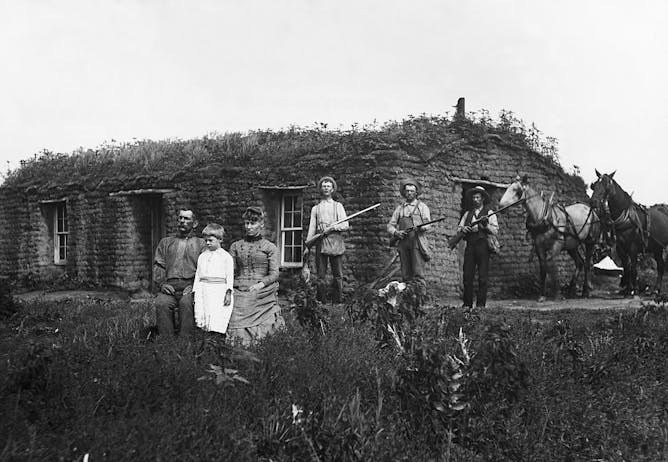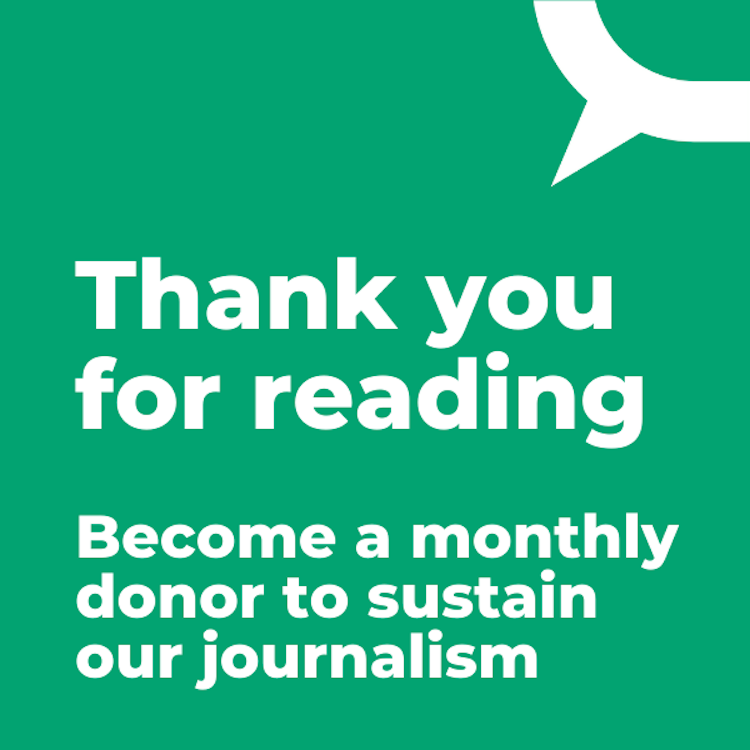|
|
|
|
How we see an object influences what we do about it – and guns are no exception.
Greg Dickinson, a communications professor at Colorado State University, and rhetoric scholar Brian Ott argue that Americans’ attitudes toward firearms are deeply shaped by three enduring stories our national culture has handed down about them. One of them, for example, is that guns are “quintessentially American,” woven into how we imagine the country’s history, especially the “Wild West.” This familiar story associates guns with freedom, Manifest Destiny and even God.
Each new wave of gun violence in the United States produces lots of debate, but usually little action. To understand why, they suggest a close look at how we talk about guns in the first place – not just in talking points, but in everyday culture.
Also today:
|

|
Molly Jackson
Religion and Ethics Editor
|
|

A family poses in front of their sod house in Custer County, Neb., in 1887.
Bettmann/Bettmann via Getty Images
Greg Dickinson, Colorado State University; Brian L. Ott, Missouri State University
The ways Americans talk about firearms is full of contradictions, two communication scholars explain – and that powerfully shapes the country’s approach to gun policy.
|
Ethics + Religion
|
-
Nancy S. Jecker, University of Washington
A bioethicist explains the four ethical principles that guide medical practitioners’ thinking about abortion, such as autonomy and justice.
-
Dimitris Xygalatas, University of Connecticut
An anthropologist explains the power of purification rituals, such as bringing down a building following a tragic occurrence in it, and why they help reduce our anxieties.
|
|
Science + Technology
|
-
Benjamin Elling, Wesleyan University
The US Environmental Protection Agency is reexamining the health effects of bisphenol A. A chemist explains why BPA is in plastics and why it’s hard to find a safe replacement.
|
|
Economy + Business
|
-
Jay L. Zagorsky, Boston University; Erich Muehlegger, University of California, Davis; Sanya Carley, Indiana University; Theodore J. Kury, University of Florida
We asked four experts to explain what gas taxes are used for and whether waiving them will make much of a difference to American households.
-
Jay L. Zagorsky, Boston University
The latest data shows imports of bottle rockets, sparklers and other fireworks at a record pace, even as consumer demand appears likely to wane. That could create opportunities for patient revelers.
|
|
Politics + Society
|
-
John A. Tures, LaGrange College
States with red flag laws saw fewer firearm deaths, on average, than states without them.
|
|
Arts + Culture
|
-
Michael T. Bertrand, Tennessee State University
Presley never wrote a memoir. Nor did he keep a diary. His music could have been a window into his inner life, but he didn’t even write his songs.
|
|
Education
|
-
Danyelle Tauryce Ireland, University of Maryland, Baltimore County
A negative environment dissuades many women engineering students from staying in the field. Can colleges and universities do anything to reverse the trend?
|
|
|
|
|
|
| |
| |
| |

|
| |
| |
| |
| |
| |
| |
|
|
|
|
|
|
|